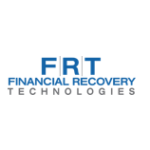FRT’s 2018 Top 5 List: Resources
On behalf of our team across the globe here at Financial Recovery Technologies, we’ve compiled the most popular FRT Resources on Shareholder Class Actions produced by the team here at Financial Recovery Technologies in 2018.
We have much more coming your way in 2019 – follow us on LinkedIn and bookmark our blog to stay up-to-date. Thank you for your continued partnership and we look forward to building on our relationship and supporting your shareholder class action recovery efforts in 2019 and beyond.
#1 Whitepaper: Global Group Litigation
The Morrison v. National Australia Bank case changed the global landscape for class action recoveries. In June, 2010, the U.S. Supreme Court ruled that securities traded outside the U.S. are no longer within U.S. jurisdiction, effectively barring investors who purchased securities on a foreign exchange from filing U.S. class actions.
An important consequence of the decision has been the increased time and attention investors need to allocate towards evaluating potential litigation in non-U.S. jurisdictions.
What you will learn:
- The global scope of venues for group securities litigation continues to expand.
- Legal mechanisms used for handling group actions in eight different global jurisdictions.
- The shift of global matters to mirror those of U.S. passive claims filing.
#2 Whitepaper: Why Antitrust Claims Filing Needs to be a Part of Every Institutional Investor’s Strategy
In 2016, nearly $2 billion in settlement funds were disbursed as part of the Credit Default Swap (CDS) lawsuit, which alleged many of Wall Street’s largest firms conspired to limit competition in the CDS market. Rather than a sizable outlier, this matter is a bellwether for a larger group of cases with potential recoveries on a scale not previously seen in the securities area.
With more than 50 efforts at different stages of litigation, many investors are not prepared to take full advantage of what lies ahead.
What you will learn:
- Complexity of antitrust class action litigation
- Future of antitrust matters in the U.S. and abroad
- Claims filing protocol for Forex Antitrust Case ($2.3B)
#3 Report: Illustrating the outer time limits by which filing decisions must be made
This is part of a series of articles discussing how investors can use technology to monitor their trading portfolios and engage with counsel in a more informed way when considering direct actions. These are front-end, pre-filing approaches that supplement and enhance – not replace – full legal analyses by counsel.
Here we discuss using technology to illustrate the outer time limits by which filing decisions must be made. While the decision when to bring claims is strategic, and should be made in consultation with counsel, the law sets time limits after which claims cannot be brought, and investors should understand and track those limits.
What you will learn:
- Definitions of class period, statute of limitations, and statute of repose
- Using technology to visualize when your firm needs to take action
- The timing of filing decisions is strategic and should be made with assistance of counsel
#4 Report: A Primer on Global Group Litigation
Over the past 10 years, global group litigation matters have not only increased in terms of cases and active jurisdictions, but have also evolved in terms of complexity and the degree of information necessary to make an informed participation decision.
These changing dynamics are complicating the participation analysis and requiring investors to evaluate and analyze an array of factors.
What you will learn:
- The global landscape is adapting to increased interest in global resolutions
- There are four primary stages of the global group litigation recovery process
- Integrating global policies to fulfill fiduciary responsibilities
- Outsourcing can deliver high value
#5 Report: A Primer on Antitrust Litigation
The pace of antitrust settlements is accelerating. Of the more than 40 active antitrust matters, at least six have partially settled with hundreds of millions sitting in escrow accounts. In most of the cases, litigation continues against other defendants, creating the potential for more recoveries in the future.
Most notably, as in the $2.3 billion Forex Settlement, antitrust cases tend to involve more complex settlement administrations and financial instruments. Class counsel and administrators rely heavily on experts to assess damages and formulate distribution plans.
While some receive publicity, other matters settle without much fanfare. However, settlement amounts are nearly 300% larger in antitrust class actions than traditional shareholder class action cases creating significant opportunities for substantial recoveries.
What you will learn:
- How antitrust cases differ from shareholder class actions
- There are four primary stages of the antitrust recovery process
- Outsourcing can deliver high value
Learn More
To learn more about how FRT can help your firm maximize recoveries in shareholder class action settlements, contact us at learnmore@frtservices.com.
- Blogs
About FRT
U.S. CLAIMS I GLOBAL GROUP LITIGATION I ANTITRUST I LITIGATION MONITORING I BUYOUTS
Founded in 2008, Financial Recovery Technologies (FRT) is the leading technology-based services firm that helps the investment community identify eligibility, file claims and collect funds made available in securities and other class action settlements. Offering the most comprehensive range of claim filing and monitoring services available, we provide best-in-class eligibility analysis, disbursement auditing and client reporting, and deliver the highest level of accuracy, accountability and transparency available. For more information, go to www.frtservices.com.
- Follow us on Twitter: @FRTServices
- Follow us on LinkedIn: Financial Recovery Technologies
- Email us: learnmore@frtservices.com
This communication and the content found by following any link herein are being provided to you by Financial Recovery Technologies (FRT) for informational purposes only and does not constitute advice. All material presented herein is believed to be reliable but FRT makes no representation or warranty with respect to this communication or such content and expressly disclaims any implied warranty under law. Opinions expressed in this communication may change without prior notice. Firms should always seek legal and financial advice specific to their unique situation and objectives.





